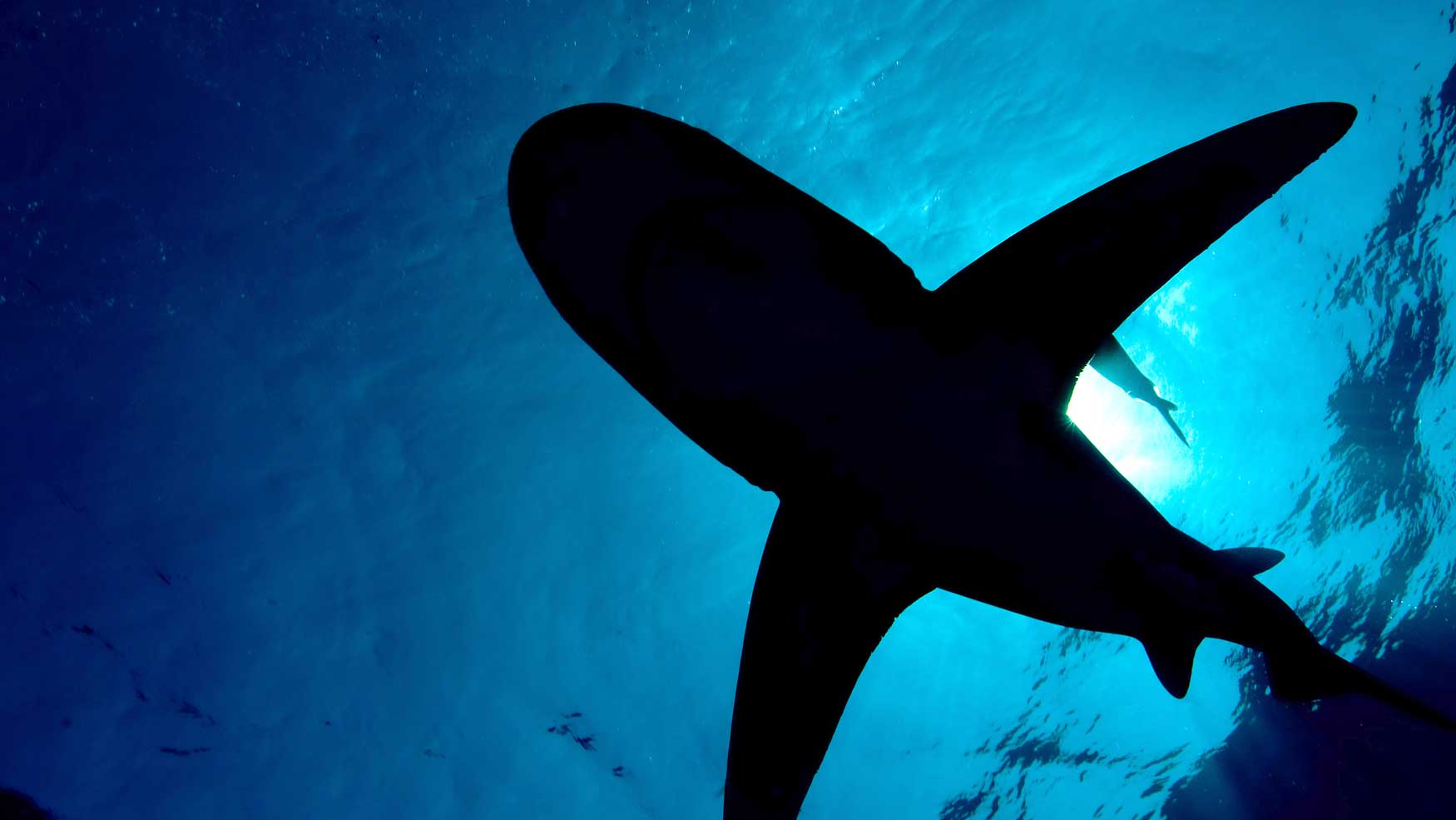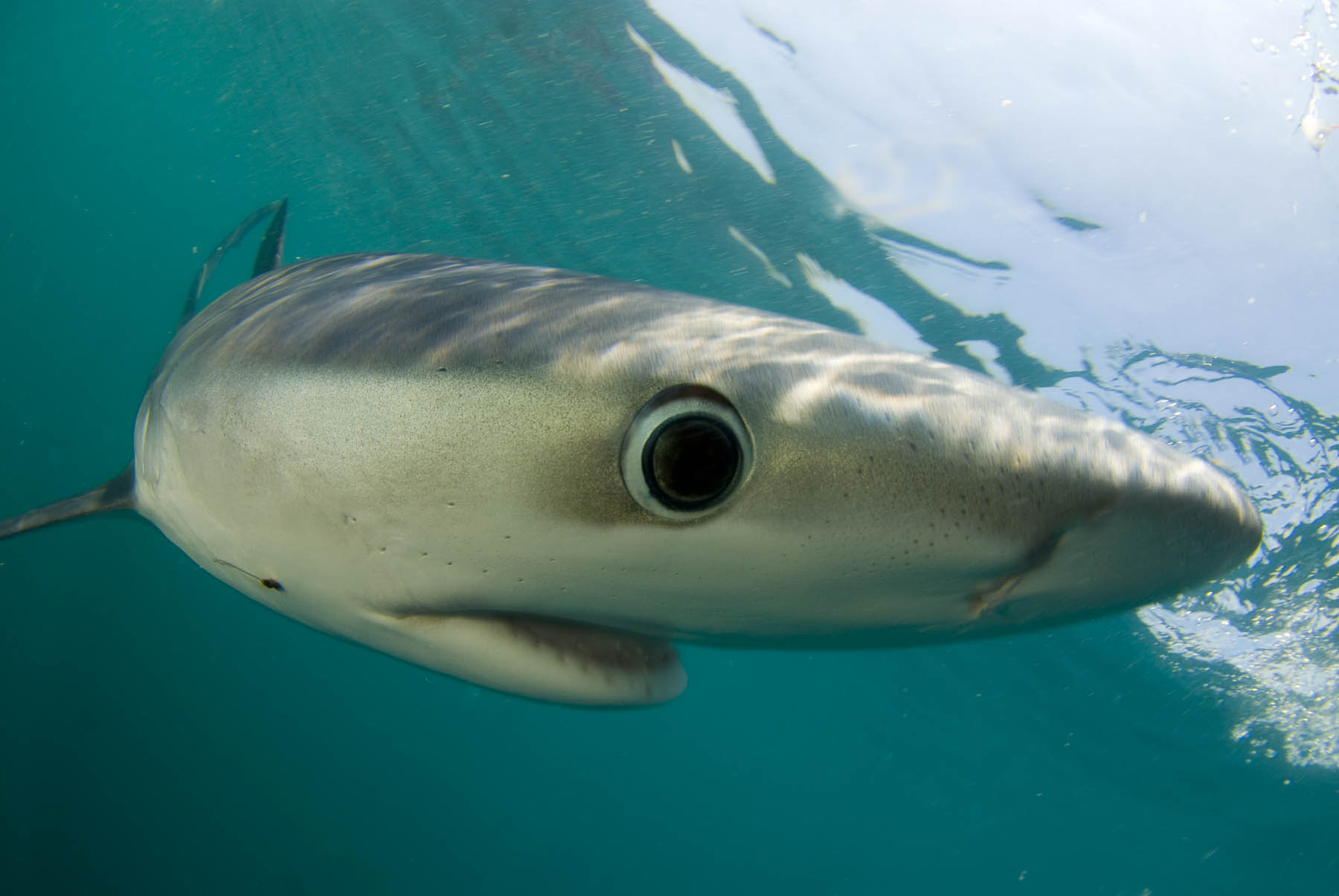Conservation
Sharks are among the most threatened vertebrates on the planet, with many populations in decline globally due to overfishing. Atlantic Shark Expeditions (ASE) is committed to supporting shark research and conservation, while operating sustainably.
Research has demonstrated that dive experiences with sharks can lead to pro-conservation behavioral changes in people. ASE expeditions are designed to shift negative public perceptions of sharks as well as enhance public understanding and appreciation of sharks. By providing guests with opportunities to experience sharks in the wild, ASE expeditions aims to help promote awareness, knowledge, appreciation, and conservation of sharks. Our expeditions also help demonstrate sharks are worth more alive than dead.
Our expeditions are specifically designed to support research being conducted by Dr. Neil Hammerschlag and the Shark Research Foundation to increase scientific knowledge, and promote community support for sharks in Atlantic Canadian waters. Research objectives include photo identification of individuals, monitoring relative abundance trends over time, determining the life-history stage and reproductive status of individuals, evaluating heavy metal toxin levels in shark muscle tissues, monitoring body condition, and evaluating residency and space use patterns.
ASE expeditions in Nova Scotia provide opportunities for ecotourists to observe sharks in the wild and contribute to te research as Citizen Scientists to help build a photo identification database of sharks in the region. Citizen Science is an opportunity for the public to be involved in scientific inquiry through proactive participation with scientists working on real time problems relating to their research goals. Participation involves scientifically sound practices and measurable outcomes.
ASE research and citizen science activities with Great White Sharks off Nova Scotia are permitted by the Canadian Government under the Species at Risk Act (permit # DFO-MAR-2022-39)
We would like to preempt any concerns raised regarding our white shark research and ecotourism activities off Nova Scotia as it relates to human safety.
Atlantic Shark Expeditions (ASE) endeavours to run an operation that contributes to scientific knowledge, is cognitive of global best practices, and provides the public with experiences that are inspiring and educational. We also hope to positively support local businesses by brining visitors to their establishments. As such we would like to preempt any concerns raised regarding ASE’s great white shark research and ecotourism activities off Nova Scotia as it relates to human safety:
- ASE will not be intentionally feeding sharks.
- ASE will not be operating in the immediate vicinity of swimming beaches or popular surfing sites.
- ASE will not be operating ecotourism trips in the absence of science. Our activities are driven by science; through this research, ecotourists have the privilege of joining researchers on boat-based expeditions to search for sharks, view sharks from the boat and/or underwater from the cage, learn from the research team, and observe scientific activities. The ecotourism funds the science.
- In addition to research, ASE expeditions are designed to shift negative public perceptions of sharks as well as enhance public understanding and appreciation of sharks. By providing guests with opportunities to experience sharks in the wild, ASE expeditions aims to help promote awareness, knowledge, appreciation, and conservation of sharks. Our expeditions also demonstrate that live sharks are valuable to local economies, drawing ecotourists and visitors to local businesses.
It is also worth clearing up some misconceptions abouts attracting sharks for research and ecotourism:
- No scientific evidence exists that shark research or cage diving increases risk to bather safety.
- Studies that have investigated impacts of shark dive tourism on white shark behavior, have found minimal, if any, short-term impacts.
- Attracting sharks using chum or fish parts cannot increase the number of sharks in an area, it only attracts sharks to the vicinity of the boat or cage. In fact, we go to areas where the sharks already naturally occur. If the sharks are not already in the area or coming to the area on their own accord, we will not have any success at a shark encounter.
- The idea that cage diving would lead a shark to associate a human with food is false for several reasons. First, we try not to feed the sharks. If they are able to opportunistically grab a small piece of bait, this is not intentional, nor is it enough of a food reward to cause any associations. Second, the shark doesn’t have the visual ability to distinguish the people in the cage. They likely can see the outline of the cage, but not the people within it. So even if sharks were being repeatedly fed, which they are not, any association that could possibly form would be with the cage, not with people.
- While bait is indeed used to create an attractive smell that lures sharks to the boat, the amount of bait we use pales in comparison to the copious amounts of attractive smell being emitted by their natural prey (like seals). In fact, we often focus on areas where there are lots of seals present as the seals are what attract sharks to the area. In addition to the odors emanating from their natural prey, the boat-based attractants used in our shark research and ecotourism pales in comparison to the huge amount of chumming being conducted by fisherman to catch fish. There are hundreds, if not thousands, of boats operating off the coast, that use chum and bait to attract and catch fish, often directly or indirectly capturing sharks. Sharks are not only captured on baited hooks, but they will eat fish off the hooks of fisherman before fishermen have the chance to bring in their catch on the boat. If anything, this is repeated and widescale feeding of sharks that pales in comparison to our activities.
- For an interesting discussion on how chumming doesn’t lead to increased risk of shark attack, check out: www.aaas.org/chumming-leading-more-shark-attacks
Human Safety is a priority for ASE. As such, here are important safety points we would like the public to know:
- Great white sharks are not mindless killers as portrayed in the media. They are strategic, beautiful, and misunderstood predators, deserving respect.
- Great whites have always been present in Nova Scotia, but sightings are increasing in recent years, the reasons are not clear, but it could be related to their recovering populations, increases in their prey, and warming waters from climate change.
- There are more people entering the water than ever before. This means that chances for shark-human encounters are increasing.
- Nova Scotia’s inshore waters also have poor visibility, coupled with seals often swimming nearshore.
- Taken together, more people in the water, poor inshore visibility, and presence of seals makes the chances of a white shark encountering and mistakenly biting a person a potential, but rare, reality.
- We want people to know that white sharks are here, their numbers appear to be rising, and that as humans we take a risk when we go into the water, although that risk is low. So, we suggest a few tips to reduce your risk and be shark smart:
– Avoid swimming or surfing in an area if a shark has recently been spotted.
– Avoid swimming or surfing in an area if seals are present or have recently been spotted.
– Avoid swimming or surfing in an area with unusually high fish activity.
– Avoid swimming or surfing in an area that someone is actively fishing or has recently been fishing.
– Avoid swimming or surfing alone.
– Avoid swimming or surfing during low light conditions (dawn, dusk, night).
– Avoid wearing exposed jewelry that could reflect light and resemble the scales of a fish.
– If you feel strange or uncomfortable, get out of the water. People that have been bitten sometimes report having a strange feeling prior to the bite; it’s possible your subconscious mind is picking up on warning signals that your conscious brain doesn’t.




